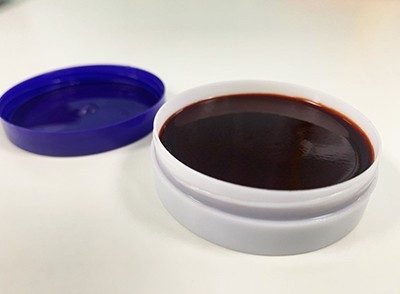Cranberry-boosted lipstick inactivates viruses and bacteria on contact
Date: 23.12.2022
While most of us wouldn't dream of not washing our spoons or forks after each use, we have no problem repeatedly using – or even sharing – a never-washed tube of lipstick or lip balm. That's why scientists have recently developed a cranberry-fortified antimicrobial lipstick.
 First of all, why not just create a lipstick that's infused with antibiotics? Well, for one thing, the more often antibiotics are used, the greater the resistance bacteria will develop to them. Antibiotics also don't work on viruses, plus they may cause unwanted side effects when ingested.
First of all, why not just create a lipstick that's infused with antibiotics? Well, for one thing, the more often antibiotics are used, the greater the resistance bacteria will develop to them. Antibiotics also don't work on viruses, plus they may cause unwanted side effects when ingested.
That's where cranberries come in. They contain micronutrients known as polyphenols, which inhibit the activity of viruses, bacteria and fungi. As a result, the microbes are unable to communicate with one another for reproductive purposes, so their populations simply die out instead of increasing. And because polyphenols don't outright kill the microbes, bacteria are unlikely to become resistant to them.
For the experimental antimicrobial lipstick, Prof. Ángel Serrano-Aroca and colleagues at Spain's Universidad Católica de Valencia San Vicente Mártir (Valencia Catholic University Saint Vincent Martyr) added cranberry extract to an existing lipstick cream base. That base contained a number of skin-health-boosting ingredients, such as shea butter, vitamin E, provitamin B5, babassu oil and avocado oil.
The resulting lipstick was then added to cultures in which viruses, bacteria and Candida albicans fungus were growing. Among the viruses was a surrogate of COVID-19-causing SARS-CoV-2, while the bacteria included harmful drug-resistant varieties such as Staphylococcus aureus and Escherichia coli. It was found that just one minute after contact, all of the viruses were completely inactivated. The bacteria and fungus were likewise substantially inactivated after five hours of contact.
Image source: Tunón-Molina (2022), ACS Applied Materials & Interfaces.























